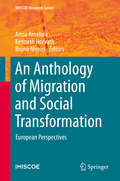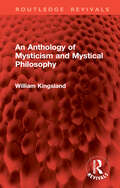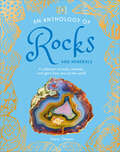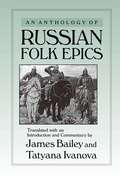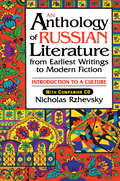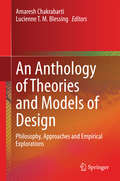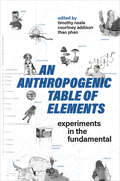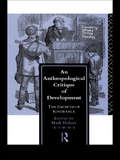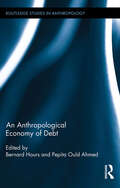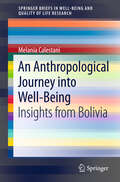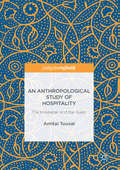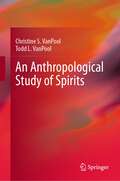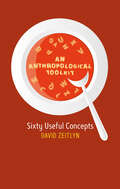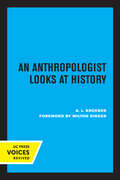- Table View
- List View
An Anthology of Informal Latin, 200 BC – AD 900
by Adams J. n.This book contains over fifty passages of Latin from 200 BC to AD 900, each with translation and linguistic commentary. It is not intended as an elementary reader (though suitable for university courses), but as an illustrative history of Latin covering more than a millennium, with almost every century represented. Conventional histories cite constructions out of context, whereas this work gives a sense of the period, genre, stylistic aims and idiosyncrasies of specific passages. 'Informal' texts, particularly if they portray talk, reflect linguistic variety and change better than texts adhering to classicising norms. Some of the texts are recent discoveries or little known. Writing tablets are well represented, as are literary and technical texts down to the early medieval period, when striking changes appear. The commentaries identify innovations, discontinuities and phenomena of long duration. Readers will learn much about the diversity and development of Latin.
An Anthology of Intriguing Animals (DK Children's Anthologies)
by DKReveal the stories behind your favourite creatures with this awe-inspiring animal book for curious kids aged 6-8.The animal kingdom is so much bigger than young minds can fathom and there is always more to learn. An Anthology of Intriguing Animals is a stunning animal encyclopedia for young readers to explore, with reference pages packed with fascinating information, little learners will be captivated as they discover the facts, stories and myths behind their favourite animals. Whether it&’s where the slow-motion sloth lives, how the plodding pangolin protects itself from predators, or which animal the Ancient Egyptians thought rolled the Sun across the sky, children can learn all sorts of fun animal facts from the storybook descriptions.This beautiful modern bestiary lets you find the animals that interest you and uncover new favourites along the way. From tigers and chameleons to wolves and owls there&’s an animal for everyone in this compendium of creatures. Each type of animal is shown both photographically and illustrated, and children will love poring over the detailed close-up images. The engaging storybook-style descriptions and simple text shed a light on the wonders of wildlife and array of animals, perfect for children aged 6-8 to love and explore for hours on end. Celebrate your child&’s curiosity as they:- Explore detailed photographs and striking illustrations of animals around the world - Reveal fun facts and myths about a wide range of animals - Uncover more than 100 animals, each with stunning images and captivating information.This animal encyclopedia for children is the perfect blend of storybook style text with out of this world illustrations which makes it a fantastic animal book for children who are obsessed with the animal kingdom. Encourage young readers to go on a journey to explore a world of information, making this the ideal first reference book for kids aged 6-8 to enjoy for hours on end, whether reading with the family or reading alone, this fun fact book also doubles up as the perfect gift for curious kids who love to learn. Explore the diversity of the animal kingdom whilst uncovering: -Stunning Jacket Detail: gold foil, holographic foil & metallic gold edges-Stunning photography & illustrations inside-A beautiful book for the whole family to treasure -A quality gift to be passed down through the generationsMore in the SeriesAn Anthology of Intriguing Animals is part of the beautiful and informative Anthology series. Complete the series and nurture your child's curiosity as they explore the natural world with The Wonders of Nature or let them walk with the dinosaurs who ruled the earth before them in Dinosaurs and other Prehistoric Life.
An Anthology of London in Literature, 1558–1914: 'Flower Of Cities All'
by Geoffrey G. Hiller Peter L. Groves Alan F. DilnotThis book is an anthology of extracts of literary writing (in prose, verse and drama) about London and its diverse inhabitants, taken from the accession of Queen Elizabeth I in 1558 to the outbreak of the Great War in 1914. The 143 extracts, divided into four periods (1558-1659, 1660-1780, 1781-1870 and 1871-1914), range from about 250 words to 2,500. Each of the four periods has an introduction that deals with relevant social, geographical and historical developments, and each extract is introduced with a contextualizing headnote and furnished with explanatory footnotes. In addition, the general introduction to the anthology addresses some of the literary questions that arise in writing about London, and the book ends with many suggestions for further reading. It should appeal not only to the general reader interested in London and its representation, but also to students of literature in courses about ‘reading the city’.
An Anthology of Migration and Social Transformation: European Perspectives (IMISCOE Research Series #0)
by Anna Amelina Kenneth Horvath Bruno MeeusThe contributions of this book examine contemporary dynamics of migration and mobility in the context of the general societal transformations that have taken place in Europe over the past few decades. The book will help readers to better understand the manifold ways in which migration trends in the region are linked to changing political-economic constellations, orders of power and inequality, and political discourses. It begins with an introduction to a number of theoretical approaches that address the nexus between migration and general societal shifts, including processes of supranationalisation, EU enlargement, postsocialist transformations and rescaling. It then provides a comprehensive overview of the political regulation of migration through border control and immigration policies. The contributions that follow detail the dynamic changes of individual migration patterns and their implications for the agency of mobile individuals. The final part challenges the reader to consider how policies and practices of migration are linked to symbolic struggles over belonging and rights, describing a wide range of expressions of such conflicts, from cosmopolitanism to racism and xenophobia. This book is aimed at researchers in various fields of the social sciences and can be used as course reading for undergraduate, graduate and postgraduate courses in the areas of international migration, transnational and European studies. It will be a beneficial resource for scholars looking for material on the most current conceptual tools for analysis of the nexus of migration and societal transformation in Europe.
An Anthology of Mysticism and Mystical Philosophy (Routledge Revivals)
by William KingslandFirst published in 1927, An Anthology of Mysticism and Mystical Philosophy is a valuable contribution to the literature of mysticism in general, both in its theoretical and experimental aspects. It contains over seven hundred and fifty quotations from one hundred and fifty-eight ancient and modern mystical, philosophical, and scientific works. This book also acts as a supplement to William Kingsland’s previous volume Rational Mysticism for it is illustrative of the principles therein set forth.
An Anthology of Our Extraordinary Earth (DK Children's Anthologies)
by Cally OldershawExplore the beauty and majesty of planet Earth in this compendium, with more than 100 incredible stories and images.The world is so much more complex than young minds can fathom, from molten-hot rock and smoldering volcanoes to icy glaciers and bubbling springs. This book about the Earth for kids aged 7+ unlocks all the mysteries of our living, breathing planet.An Anthology of Our Extraordinary Earth looks at our constantly changing planet, with striking images and scientific ideas that are easy for children to understand. Starting at the center of the Earth, the book examines each layer in forensic detail: from Earth&’s metallic core, drilling through Earth&’s tough crust until emerging out onto the planet&’s surface, with its lush green rainforests, sparkling oceans, and snow-capped mountains, before sailing up into Earth&’s airy atmosphere.This detailed planet Earth book for kids offers: - More than 100 stories about planet Earth, from snowflakes to cave pearls, each one accompanied by a photograph and delightful illustration.- Creative photography that presents planet Earth in surprising and remarkable ways, capturing nature in action or showing intriguing features up close.- Beautiful gold foil, gilded edges, and a ribbon for keeping your place.- In-depth feature pages that examine each layer of Earth.This striking book won&’t fail to excite budding geologists, geographers, environmentalists, and all-round planet Earth enthusiasts everywhere. With foil on the cover, gilded edges, and a ribbon for keeping your place, this Earth book makes an attractive gift for any child who is fascinated by our planet. With engaging information and absorbing images, this anthology is great for children to explore by themselves or for bedtime stories.More in the SeriesAn Anthology of Our Extraordinary Earth is part of DK&’s beautiful and informative Anthology series. Complete the series and nurture your child's curiosity as they explore the natural world with The Wonders of Nature, let them walk with the dinosaurs who ruled the Earth before them in Dinosaurs and other Prehistoric Life, or dive into the deep with An Anthology of Aquatic Life.
An Anthology of Rocks and Minerals: A Collection of 100 Rocks, Minerals, and Gems from Around the World (DK Little Anthologies)
by Devin DennieFind out how to identify, where to spot, and what to know about rocks, gems, and minerals with this beautiful field guide.Transportable in size and crammed with profiles of different specimens, An Anthology of Rocks and Minerals covers minerals that no collection would be complete without, including quartz, pyrite, moonstone, amethyst, lapis lazuli, and much more, as well as rock types that children will love spotting when they are out and about.Featuring photographs of striking specimens and illustrations by the artist behind DK’s best-selling Anthology series, as well as plenty of intriguing information, this book will be one to treasure for young rock and mineral enthusiasts.
An Anthology of Russian Folk Epics (Folklores And Folk Cultures Of Eastern Europe Ser.)
by James Bailey Tatyana IvanovaAn extensive introduction provides basic information about Russian epics, their historical background, their poetics, the history of their collection, their performance context, and their main interpretations. In addition, their is a short introduction to each song, explaining its plot, allusions, and interpretations. A glossary of common terms and a selected bibliography of studies about the Russian epic in English and Russian are also included in the volume.
An Anthology of Russian Folktales (500 Tips)
by Jack V. HaneyThis anthology gathers a broad selection of Russian folktales, legends, and anecdotes, and includes helpful features that make them more accessible and engaging for English-language readers. Editor Jack V. Haney has selected some of the best tales from his seven-volume "Complete Russian Folktale" collection and added examples of anecdotes and the long 'serial tales' told in the far north.The 114 tales included here represent every genre found in the Russian tradition. They date from the eighteenth through the twentieth centuries and come from all geographic regions of the Russian-speaking world. The collection is enhanced by a detailed introduction to the folktale and its types, brief introductions to each grouping of tales, head notes with interesting background for individual tales, and a glossary explaining Russian terms.
An Anthology of Russian Literature from Earliest Writings to Modern Fiction: Introduction to a Culture
by Nicholas RzhevskyRussia has a rich, huge, unwieldy cultural tradition. How to grasp it? This classroom reader is designed to respond to that problem. The literary works selected for inclusion in this anthology introduce the core cultural and historic themes of Russia's civilisation. Each text has resonance throughout the arts - in Rublev's icons, Meyerhold's theatre, Mousorgsky's operas, Prokofiev's symphonies, Fokine's choreography and Kandinsky's paintings. This material is supported by introductions, helpful annotations and bibliographies of resources in all media. The reader is intended for use in courses in Russian literature, culture and civilisation, as well as comparative literature.
An Anthology of Shells: A Collection of Fascinating Shells from Around the World (DK Little Anthologies)
by Simon AikenA beautiful collection featuring notes, spectacular photos, and illustrations of more than 100 types of shell.A compact version of DK’s bestselling anthology series, An Anthology of Shells is perfect for young nature enthusiasts aged 7-9 for taking on the go.Children can marvel at a wide range of shells from around the world that no collection would be complete without. Learn all about the shell shapes, colors, and textures–and get up close with the snails, crabs, and clams that live in them.This impressive shells anthology for kids offers:The third book in the new compact spin-off of the bestselling Children’s Anthologies series.A magnificent collection of over 100 shell profiles and their creatures from all over the world, from tropical rainforests to icy Antarctic waters.A quality gift book, with metallic foil and striking photographs on every page.An Anthology of Shells pairs photography with storybook descriptions that will captivate young readers, whether it’s marveling at conchs or clams. Featuring photographs of striking formations and illustrations by the artist behind DK’s bestselling Anthology series, as well as plenty of intriguing information, this book will be one to treasure for young conchologists.More in the seriesAnthology of Shells is part of the beautiful, new, and compact Anthology spin-off series. Complete the series and nurture your child's curiosity as they explore geology and earth materials with Rocks and Minerals or mushroom species with the Fungi field guide.
An Anthology of Theories and Models of Design: Philosophy, Approaches and Empirical Explorations
by Amaresh Chakrabarti Lucienne T. M. BlessingWhile investigations into both theories and models has remained a major strand of engineering design research, current literature sorely lacks a reference book that provides a comprehensive and up-to-date anthology of theories and models, and their philosophical and empirical underpinnings; An Anthology of Theories and Models of Design fills this gap. The text collects the expert views of an international authorship, covering: #65533; significant theories in engineering design, including CK theory, domain theory, and the theory of technical systems; #65533; current models of design, from a function behavior structure model to an integrated model; #65533; important empirical research findings from studies into design; and #65533; philosophical underpinnings of design itself. For educators and researchers in engineering design, An Anthology of Theories and Models of Design gives access to in-depth coverage of theoretical and empirical developments in this area; for practitioners, the book will provide exposure to theoretical and empirical foundations to methods and tools that are currently practiced as well as those in the process of development.
An Anthology of Visual Double Stars
by Andrew James Bob Argyle Mike SwanModern telescopes of even modest aperture can show thousands of double stars. Many are faint and unremarkable but hundreds are worth searching out. Veteran double-star observer Bob Argyle and his co-authors take a close-up look at their selection of 175 of the night sky's most interesting double and multiple stars. The history of each system is laid out from the original discovery to what we know at the present time about the stars. Wide-field finder charts are presented for each system along with plots of the apparent orbits and predicted future positions for the orbital systems. Recent measurements of each system are included which will help you to decide whether they can be seen in your telescope, as well as giving advice on the aperture needed. Double star observers of all levels of experience will treasure the level of detail in this guide to these jewels of the night sky.
An Anthology of World War One, 1914–1918: Extracts from Selected Titles
by Pen & SwordSelected complete chapter extracts from some ofPen & Swordsmost exciting, brand new,First World War titles, books included are;Slaughter on the Somme, by John Grehan and Martin MaceTeenage Tommy, by Richard Van EmdenLondoners on the Western Front, by David MartinVeteran Volunteer, edited by Jamie Vans and Peter WiddowsonCommand and Morale, by Gary SheffieldInto Touch, by Nigel McCreryConscientious Objectors of the Second World War, by Ann KramerHome Front in the Great War, by David Bilton
An Anthology of the Cambridge Platonists: Sources and Commentary
by Douglas Hedley Christian HengstermannNotwithstanding their neglect in many histories of ideas in the West, the Cambridge Platonists constitute the most significant and influential group of thinkers in the Platonic tradition between the Florentine Renaissance and the Romantic Age. This anthology offers readers a unique, thematically structured compendium of their key texts, along with an extensive introduction and a detailed account of their legacy. The volume draws upon a resurgence of interest in thinkers such as Benjamin Whichcote, 1609–1683; Ralph Cudworth, 1618–1688; Henry More, 1614–1687; John Smith, 1618–1652, and Anne Conway 1631–1679, and includes hitherto neglected extracts and some works of less familiar authors within the group, like George Rust 1627?–1670; Joseph Glanvill, 1636–1680, and John Norris 1657–1712. It also highlights the Cambridge Platonists’ important role in the history of philosophy and theology, influencing luminaries such as Shaftesbury, Berkeley, Leibniz, Joseph de Maistre, S.T. Coleridge, and W.R. Emerson. An Anthology of the Cambridge Platonists is an indispensable guide to the serious study of a pivotal group of Western metaphysicians and is of great value for both students and scholars of philosophy, literature, history, and theology. Key Features The only systematic anthology to the Cambridge Platonists available, facilitating quick comprehension of key themes and ideas Uses new translations of the Latin works, vastly improving upon faulty and misleading earlier translations Offers a wide range of new perspective on the Cambridge Platonists, showing the extent of their influence in early modern philosophy and beyond.
An Anthropogenic Table of Elements: Experiments in the Fundamental (Technoscience and Society)
by Timothy Neale Courtney Addison Thao PhanAn Anthropogenic Table of Elements provides a contemporary rethinking of Dmitri Mendeleev’s periodic table of elements, bringing together "elemental" stories to reflect on everyday life in the Anthropocene. Concise and engaging, this book provides stories of scale, toxicity, and temporality that extrapolate on ideas surrounding ethics, politics, and materiality that are fundamental to this contemporary moment. Examining elemental objects and forces, including carbon, mould, cheese, ice, and viruses, the contributors question what elemental forms are still waiting to emerge and what political possibilities of justice and environmental reparation they might usher into the world. Bringing together anthropologists, historians, and media studies scholars, this book tests a range of possible ways to tabulate and narrate the elemental as a way to bring into view fresh discussion on material constitutions and, thereby, new ethical stances, responsibilities, and power relations. In doing so, An Anthropogenic Table of Elements demonstrates through elementality that even the smallest and humblest stories are capable of powerful effects and vast journeys across time and space.
An Anthropological Critique of Development: The Growth of Ignorance (Eidos (european Inter-university Development Opportunities Study Group) Ser.)
by Mark HobartQuestioning the utopian image of western knowledge as a uniquely successful achievement in its application to economic and social development, this provocative volume, the latest in the EIDOS series, argues that it is unacceptable to dismiss problems encountered by development projects as the inadequate implementation of knowledge. Rather, it suggests that failures stem from the constitution of knowledge and its object.By focussing on the ways in which agency in development is attributed to experts, thereby turning previously active participants into passive subjects or ignorant objects, the contributors claim that the hidden agenda to the aims of educating and improving the lives of those in the undeveloped world falls little short of perpetuating ignorance.
An Anthropological Defense of God
by Lloyd E. SandelandsAnthropology--the study of man--is unlike every other study because humans are its subject. And because we are its subject we cannot manage the philosophic and emotional distance necessary to see clearly. Unable to stand apart from ourselves to comprehend our own truth, we are compelled to assume things about ourselves that we cannot prove. In a word, anthropology begins in faith. Lloyd Sandelands approaches the anthropological quest for God by comparing the faiths of modern social science and of the Christian church.Sandelands describes the social scientific faith articulated by Hume, Kant, Rousseau, Schopenhauer among others, as an imagined state of nature that sees the individual as solitary, self-sufficient, and contented. By contrast, the Christian faith unites us as male and female persons in one flesh before God. The challenge in the author's view is to decide which faith to build our lives upon. Sandelands poses questions about the basic terms of human study--what is a person, and what is society?--and how do the different metaphysics of science and Church lead to different anthropologies?A worthwhile anthropology must address the questions of what constitutes human freedom, desire, and the nature of the good. Comparing the answers given by science and by the church, he finds that the one paradoxically denies freedom, denies want, and denies the good, while the other affirms freedom, affirms want, and affirms the good. Between these two anthropologies he finds there is but one true study of man.A companion to Sandelands' Man and Nature in God, his most recent book, An Anthropological Defense of God attempts to establish that an anthropology in God succeeds where an anthropology in science fails. Such success is measured not only by its ideas and findings about man, but even more by its wisdom in teaching us how to live.
An Anthropological Economy of Debt (Routledge Studies in Anthropology #21)
by Pepita Ould Ahmed Bernard HoursDebt is often thought of as a mere economic variable governed by a simplistic mechanical logic, ignoring its other facets. Whose debt, and debt of what exactly? This volume analyzes debt as a political and social construct, with a multiplicity of purposes and agents. All of these are vectors of meanings that are highly diverse, and of subtle distinctions; they show that debt is a transverse phenomenon, cutting across spaces that are not merely economic but also domestic, social and political. Each contributor takes a fresh view of the subject, dealing with debt at a different time, in a different society, on a different scale of observation. By adopting a determinedly interdisciplinary approach, the authors reveal in the phenomenon of debt a diversity of social and gendered determinants that amount in some cases to domination, allegiance or slavery, and in others to solidarity and emancipation. Debt is at one and the same time shared, imposed, political and gendered.
An Anthropological Journey into Well-Being: Insights from Bolivia (SpringerBriefs in Well-Being and Quality of Life Research)
by Melania CalestaniThis volume is a unique contribution to the exploration of a new perspective in the study of well-being, which tries to overcome the quantification bias by creating an account of 'the good life' in a specific place. Rather than numbers, this research focuses on local narratives, emphasising the urgent need to include a wider range of methodological approaches when engaging with well-being. The volume demonstrates through the Bolivian case study the value of qualitative research for well-being studies. It shows the potential to integrate predominant quantitative data with qualitative outcomes, such as those emerging through ethnography. It is aimed at academics, researchers and students in well-being/quality of life studies, as well as audiences in the non-profit, governmental and policy in the non-profit, governmental and policy sectors. The book provides new perspectives in achieving better indicators of well-being and quality-of-life.
An Anthropological Study of Hospitality: The Innkeeper and the Guest
by Amitai TouvalThis volume explores recent developments in the practice of hospitality, as well as the curious, precarious relationship between guests and their hosts. Drawing from personal interactions with an aging innkeeper called Herr Klaus and modern Airbnb hostess Gretchen, Amitai Touval offers a touching and illuminating account of how the rise of Airbnb has forged new standards of generosity, hostility, and accountability. An Anthropological Study of Hospitality is a must-read for anyone who has wondered about the intricate social cues involved in such a seemingly simple exchange.
An Anthropological Study of Spirits
by Todd L. VanPool Christine S. VanPoolThis book discusses the cultural importance of spirits, what spirits want, and how humans interact with them, using examples from around the world and through time. Examples range from the vengeful spirits of the Zulu that cast lightning bolts from clear skies to punish wrongdoers, to the benevolent Puebloan Kachina that encourage prosperity, safety, and rain in the arid American Southwest. The case studies illustrate how humans seek to cooperate (or counteract) spirits to heal the physical and spiritual ailments of their people, to divine the truth, or to gain resources. Building from their cross-cultural analyses, the authors further discuss how our physiology and psychology impact our interaction with the spirits. Readers will come away with an appreciation of the beauty and power of the spirits that continue to shape the lives of people around the world.
An Anthropological Toolkit: Sixty Useful Concepts
by David ZeitlynPresenting sixty theoretical ideas, David Zeitlyn asks ‘How to write about anthropological theory without making a specific theoretical argument.’ “David Zeitlyn has written a wryly engaging, short book on, essentially, why we should not become theoretical partisans—that, indeed, being a serious theorist means accepting precisely that principle.”—Michael Herzfeld, Harvard University To answer, he offers a series of mini essays about an eclectic collection of theoretical concepts that he has found helpful over the years. The book celebrates the muddled inconsistencies in the ways that humans live their messy lives. There are, however, still patterns discernible: the actors can understand what is going on, they see an event unfolding in ways that are familiar, as belonging to a certain type and therefore, Zeitlyn suggests, so can researchers. From the introduction: This book promotes an eclectic, multi-faceted anthropology in which multiple approaches are applied in pursuit of the limited insights which each can afford…. I do not endorse any one of these idea as supplying an exclusive path to enlightenment: I absolutely do not advocate any single position. As a devout nonconformist, I hope that the following sections provide material, ammunition and succour to those undertaking nuanced anthropological analysis (and their kin in related disciplines)…. Mixing up or combining different ideas and approaches can produce results that, in their breadth and richness, are productive for anthropology and other social sciences, reflecting the endless complexities of real life. …This is my response to the death of grand theory. I see our task as learning how to deal with that bereavement and how to resist the siren lures of those promising synoptic overviews. This book is relevant to anthropology, communication studies, cultural studies and sociology.
An Anthropologist Looks at History
by A. L. KroeberThis title is part of UC Press's Voices Revived program, which commemorates University of California Press’s mission to seek out and cultivate the brightest minds and give them voice, reach, and impact. Drawing on a backlist dating to 1893, Voices Revived makes high-quality, peer-reviewed scholarship accessible once again using print-on-demand technology. This title was originally published in 1963.
An Anthropologist at Work
by Ruth BenedictAn Anthropologist at Work is the product of a long collaboration between Ruth Benedict and Margaret Mead. Mead, who was Benedict's student, colleague, and eventually her biographer, here has collected the bulk of Ruth Benedict's writings. This includes letters between these two seminal anthropologists, correspondence with Franz Boas (Benedict's teacher), Edward Sapir's poems, and notes from studies that Benedict had collected throughout her life. Since Benedict wrote little, Mead has fleshed out the narratives by adding background information on Benedict's life, work, and the cultural atmosphere of the time.Ruth Benedict formed her own view of the contribution of anthropology before the first steps were taken in the study of how individual human beings, with their given potentialities, came to embody their culture. In her later work, she came to accept and sometimes to use the work in culture and personality that depended as much upon social psychology as upon cultural anthropology. She came to recognize that society - made up of persons or organized in groups - was as important as a subject of study as the culture of a society.This volume, greatly enhanced by Mead's contributions, is a record of what was important to Benedict in her life and work. It is expertly ordered and assembled in a way that will be accessible to students and professionals alike.



